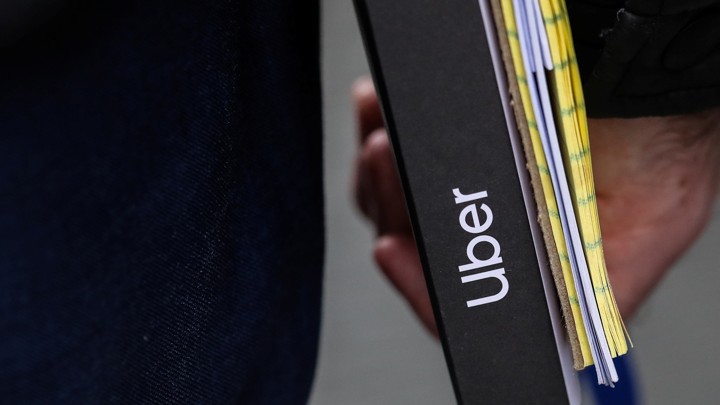Sunday, May 26, 2019
Friday, May 24, 2019
Uber And The Public
Uber was Silicon Valley's darling, but its stock is sinking. The difference between what venture capitalists and the broader public think the company is worth reveals a lot about how the tech industry works, writes @alexismadrigal https://t.co/wXQcI8JabR
— The Atlantic (@TheAtlantic) May 24, 2019
Why Silicon Valley Loved Uber More Than Everyone Else Uber was the most valuable private company in history, but the public market has not been as enthusiastic. The reason explains a lot about how the tech industry works.......... Silicon Valley’s cultural divergence from the business reality. ....... Uber has taken more money than any other company from the dense set of moneymen who bankroll new(ish) companies. Its investors include Alphabet, Google’s parent company; Jeff Bezos; Softbank; the Saudi sovereign wealth fund; a slew of marquee venture-capital firms; Goldman Sachs; and even Tim Ferriss, whose work week is probably even shorter now. In 2014, the company set the record for the largest valuation ever for a private tech company—at $17 billion—and then smashed its own mark many times. ....... He and his firm would rely on their instinct instead of putting a number on the company’s value the standard way—by looking at the market Uber was targeting and figuring out how much market share it could win. ......... Drivers drove and riders rode—and the only thing necessary to connect them was an app on a phone. The model didn’t just make financial sense to people trained to think in Silicon Valley in the 2000s; it made ideological sense.......... “We’re in this political campaign, and the candidate is Uber. And the opponent is an asshole named Taxi” ...... The company tried to catalyze riders to contact their local officials telling them to allow Uber to operate, no matter the rules on the books; the effort was called Operation Rolling Thunder. ........ In Kalanick’s national crusade against Taxi, he literally hired Barack Obama’s campaign manager, David Plouffe. In a tough battle in New York, he brought in Michael Bloomberg’s former campaign manager, Bradley Tusk, and won. Tusk later founded a venture firm based on the idea they could help start-ups with politics. ....... For providing this kind of service to Uber, Tusk may have made $100 million........ The company created a loyal user base in a legal gray area, then when a city’s elected political leaders made a decision Uber did not like, the company would use its power to push their political messaging to their users. Elected officials became like customer-service representatives during a cable outage, desperate and nervous.......... Uber really was about the triumph of individualism, an ethos that infuses Silicon Valley so thoroughly that it’s hard for most here to see. Companies that fit that pattern are more likely to garner VC attention, get funding, and find success. That’s how Silicon Valley shapes the world. ......... But they cannot sustain companies within their bubbles of influence forever. They must leave the nest for the public markets, where they are judged on their bottom lines. So far, the market says: This company is worth $50 billion less than its executives and bankers thought.......... And in Uber’s world, the market is always right.
Subscribe to:
Posts (Atom)

